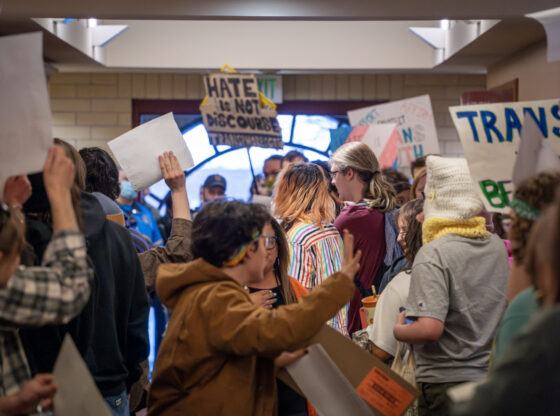It’s hard to know what to say when talking about the latest school shooting—so many prior calls for change in so many places—but guns are the the one thing that we usually talk about in the wake of a mass shooting. For one high-profile person, that was not the case in this instance. President Trump in his address on the day after the Marjory Stoneman Douglas High School shooting in Parkland, Florida, did not mention guns, skirting an issue on which he has spoken few words, including after the Las Vegas massacre. He did, however, mention mental health, a topic that he brought up after previous shootings. Though frustrating that Trump did not speak of gun control in his speech, many agree that addressing mental illness in the U.S. is a priority. This is certainly true, but there’s still a problem: the Trump administration is confronting neither mental health nor gun control.
As more details about the gunman are published, it is clear that this person had behavioral and mental problems, something that President Trump acknowledged in a tweet where he scolded community members for not reporting this to the authorities. His speech also pointed out “the difficult issue of mental health” as it relates to this shooting. While many may perceive this as a distraction from the real conversation of gun control measures, the mental health dimension does deserve attention. Almost 20 percent of U.S. adults experience mental health problems in a given year, and problems often get worse with lack of treatment. President Trump is not wrong in acknowledging mental health as a huge problem in the U.S., one that can play a role in ghastly acts of violence.
But the Trump administration’s actual priorities on mental health were revealed in the deliberations on the failed healthcare bill that kicked around in Congress at the end of summer 2017. Though the bill did not pass, it made the administration’s inaction on healthcare clear. The bill included proposed cuts to Medicaid, which is the largest payer for mental health services in the U.S., and also proposed allowing states to waive requirements to cover problems like mental health and addiction. If Trump is choosing to emphasize mental health over gun control as a response to mass shootings, one would think he is willing to act on this issue. In reality, he has done nothing productive for either.
Actually, it gets worse. In February 2017, President Trump signed a bill rescinding an Obama-era regulation that had made it more difficult for people with mental illness to buy guns. This contradicts Trump’s words on mental illness following the Florida shooting. Bringing up mental health and its connection to violence in his speech was a way to seem like there was a proposed policy solution somewhere, but no one should be fooled.
Mental illness and gun violence are both pressing issues in the U.S., and they both need concrete action. If the Trump administration does care about helping the mentally ill, then they should focus on access to services and treatments. But if the Trump administration also cares about the lives of those murdered in mass shootings, then addresses to the nation need to include gun control proposals. The only way to actually ensure that mass shootings don’t happen is to support both mental health treatment and real gun control measures. The Trump administration is doing neither when it needs to be doing both.











